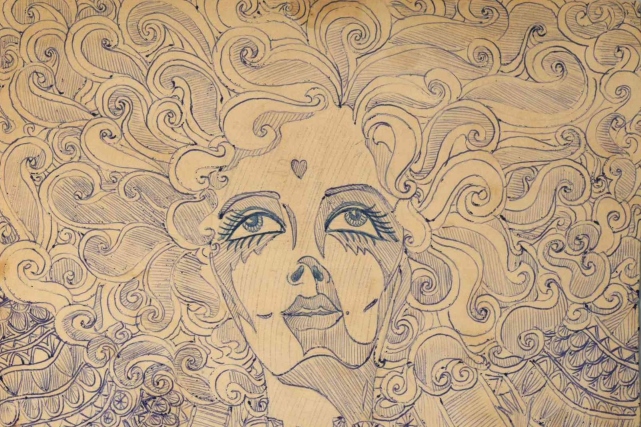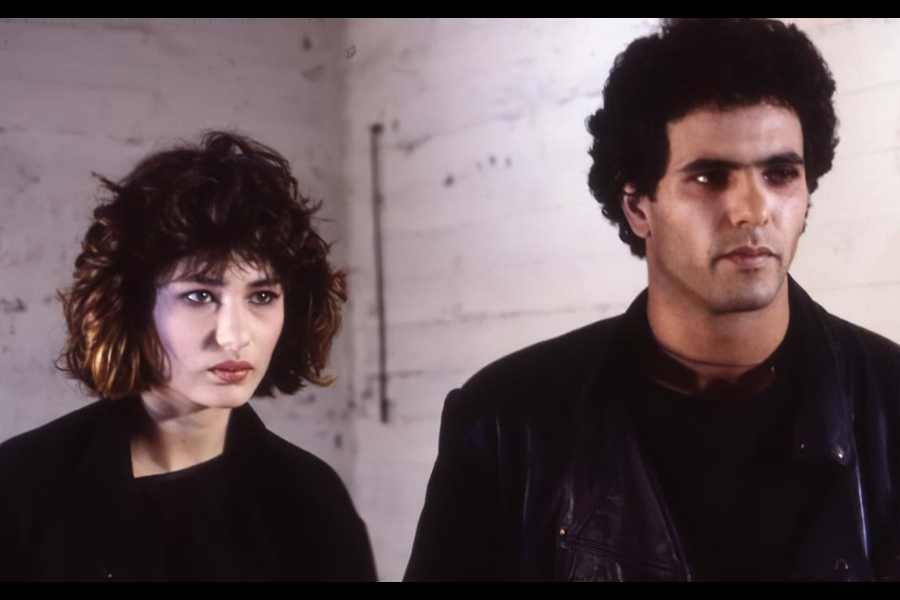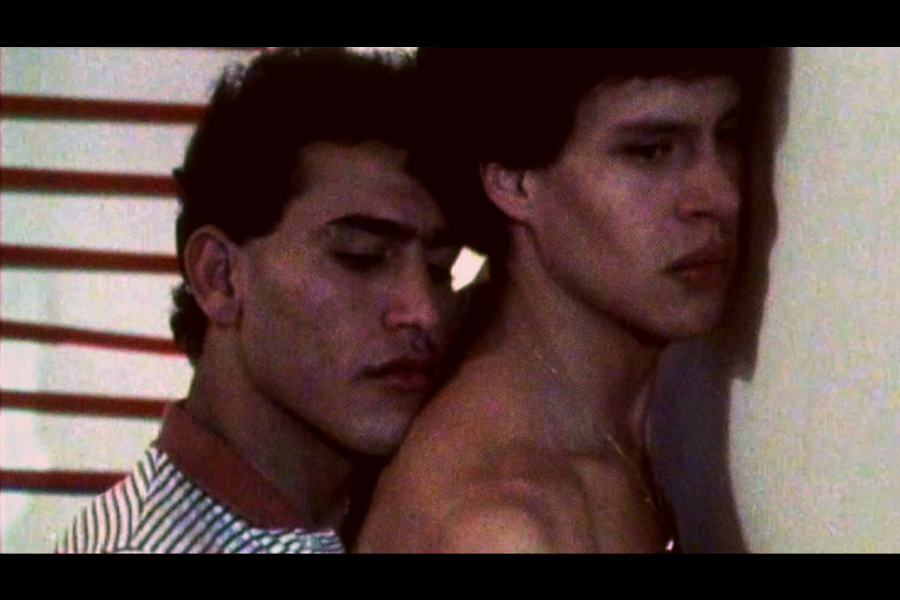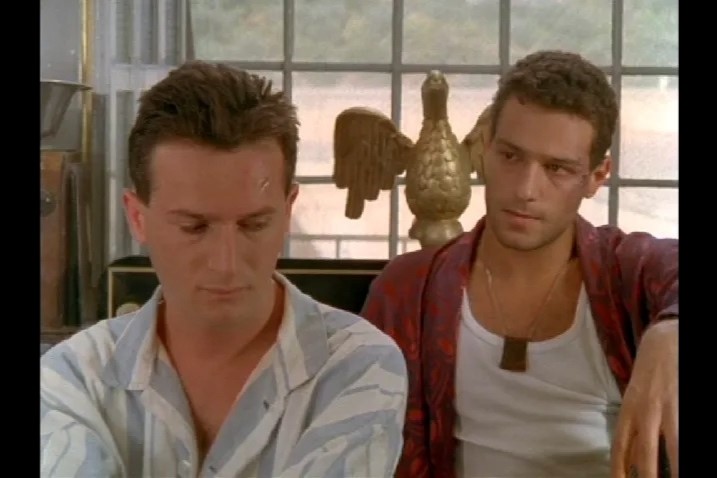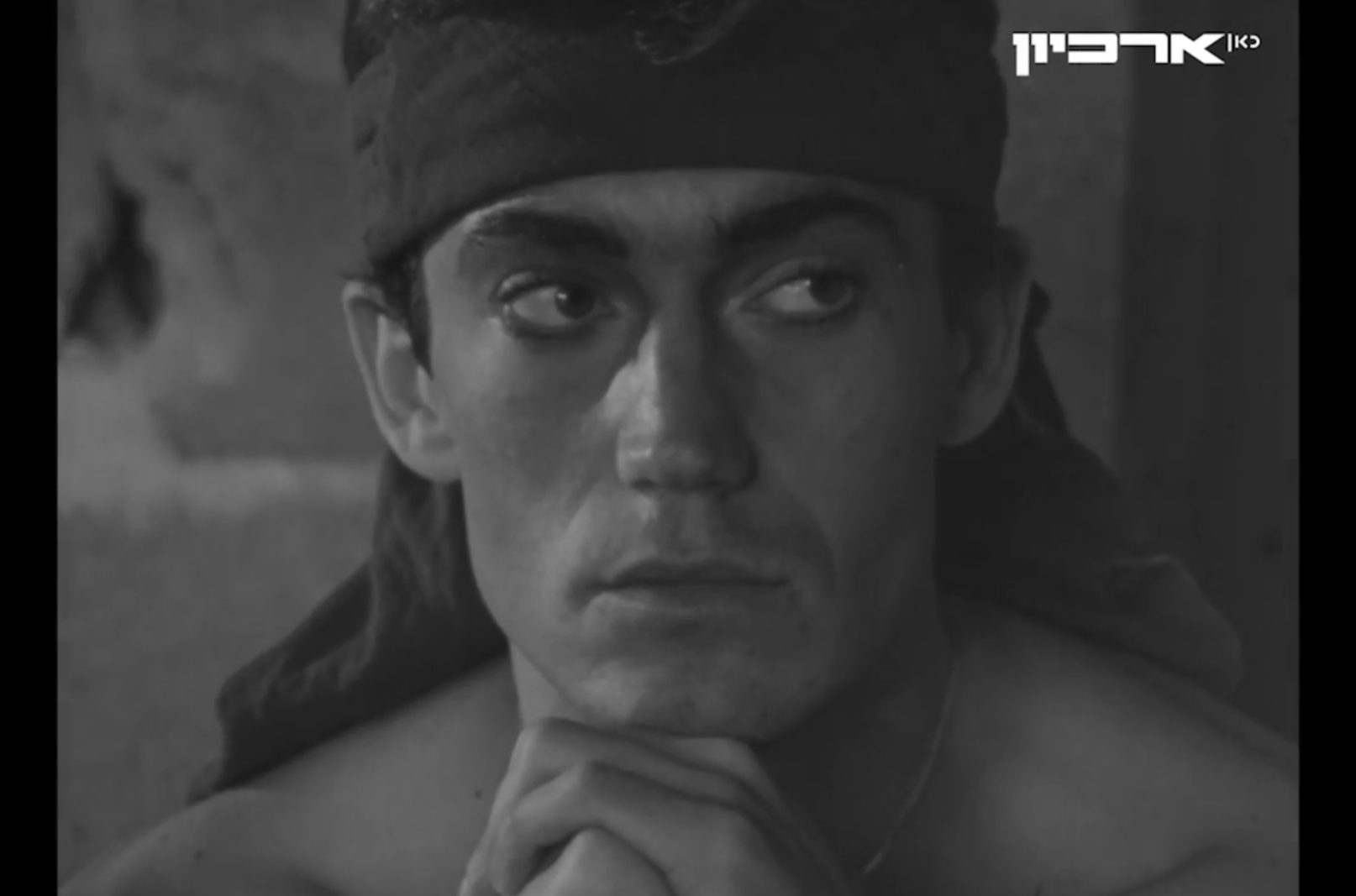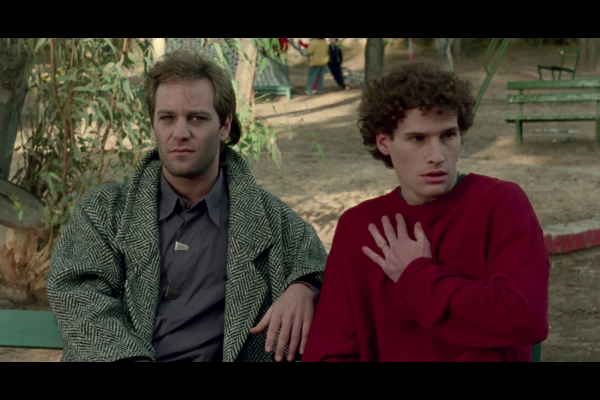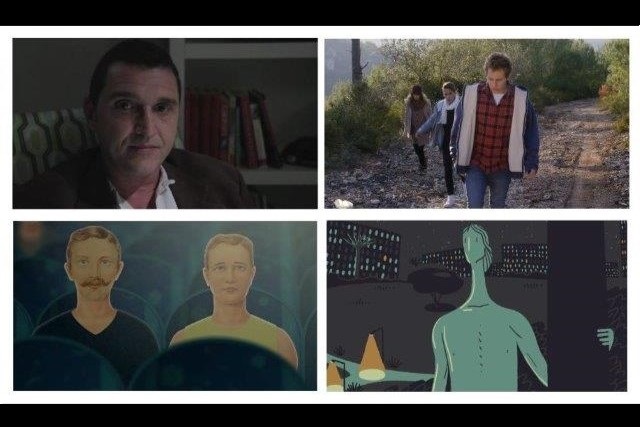Amos Guttman (1954-1993) was a filmmaker and a screenwriter, one of the more important auteurs of the Israeli cinema’s young New Wave. His films, such as “Drifting”, “Himmo, King of Jerusalem” and “Amazing Grace” presented the viewers with a new artistic vision, both visual and conceptual. Guttman mostly dealt with topics such as homosexual life, loneliness, alienation and the AIDS pandemic – which he himself succumbed to at the age of 38.
We are proud to present a selection of sketches and works from Guttman’s estate which were donated to the Tel Aviv Cinematheque by his family. The works present a surprising and almost unknown aspect of Guttman the artist – graphic abilities that correspond with his aesthetic approach as it is shown in his cinematic persons of influence. We can also see the private side of Amos Guttman through the birthday card illustration he made for his beloved niece, Maureen.
The works shown are from the Amos Guttman’s collection, the archive of Tel Aviv Cinematheque Library of Cinema.
This exhibition is part of Amos Guttman Retrospective
